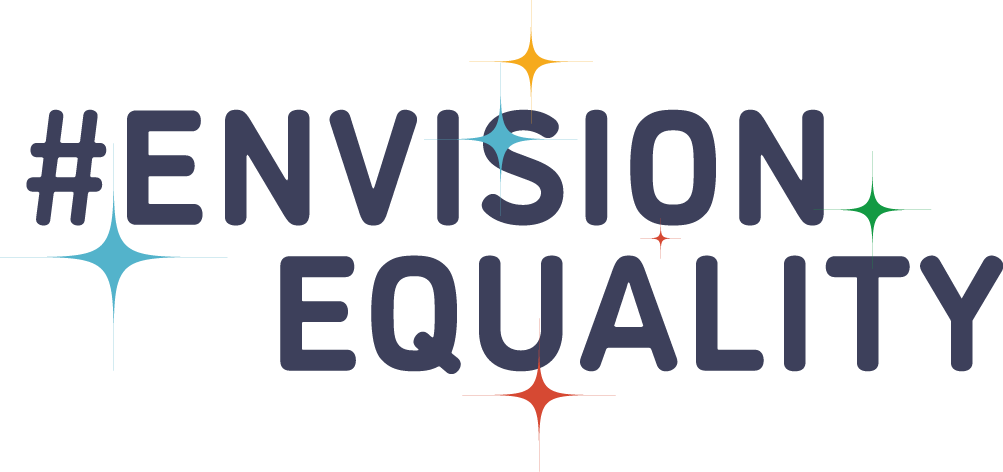
Amy Hepburn
CEO of the Investor Leadership Network
What would a gender equal world look like? How will we know when we’ve achieved it?
We will know we’ve truly achieved a gender equal world when all people have equal rights, opportunities and access to resources, regardless of their gender. No one will worry about their education, income, physical autonomy or safety being threatened. In a gender equal world, people of all genders will have equal representation at the highest levels of decision making, whether that be in the courtroom, the political arena, the boardroom or through financial status. The words “boss” and “founder” will no longer be preceded by a gender label because gender will no longer be a determinant of access to and success in leadership positions. The ladder to these titles will not be custom-built for masculine behaviors. Women will no longer break through the professional glass ceiling by assimilating to the patriarchal definitions of professionalism; there will be no need to “bring your folding chair,” because a seat will already be waiting at the table, ready to support you exactly as you are.
As CEO of the Investor Leadership Network, I know firsthand how powerful a tool financial capital can be; money has massive influence over what is prioritized in society. Our world will not be gender equal until it is financially inclusive. Women, and especially women of color, must be equally represented throughout leadership at capital-allocating financial institutions, as well as companies and organizations.
What do you think it will take to achieve? (Who needs to be a core part of the movement/solutions? What strategies should we be focusing on?)
I often tell my four young children when they are confronted with an injustice that they have two choices: become part of the solution or remain part of the problem by being silent and complicit in a world that allows it to persist.
The more we place women in places of innovation, of decision making and of power, the more equal our world will inherently become. This means that we must prioritize inclusion— especially financial. As the G7 countries jointly spend $100 billion on climate solutions over the next four years, women should be at the table. This will require the investment community to become more stringent in their social due diligence, as well as capital seeking companies explicitly committed to intersectional gender diversity.
Given the current status of the world, what gives you hope and inspiration that we can achieve equality?
I’m inspired by how young people are casting votes for their futures through their political and social organizing, their conscious consumption and their purpose-driven careers. I’ve felt a seismic shift over the past year stemming from these younger generations challenging inequalities at both the interpersonal and systemic level, and rapidly socializing equality into baseline normality. I’m also inspired by the action we’re seeing from the private sector to mobilize capital toward real diversity, equity and inclusion. Investors are doubling down on incorporating social metrics into their company valuations and investment decisions. Companies are following suit: The B Team recently called for business leaders to establish time-bound commitments to ensure racially diverse C-suites and boardrooms by 2025. Companies are prioritizing inclusion to ensure that people of all identities are welcome and supported in the workplace by adopting better parental policies, sourcing from more diverse talent pipelines and committing to employee retention. Of course, gender equality will reach far beyond the private sector, but inclusion in capital-welding organizations can help unlock equality in other sectors.
What do you see as the three biggest barriers to achieving equality?
First: Understanding empowerment. When pursuing equality, sometimes privileged groups have the perception that by empowering others, they’re disempowering themselves. The goal of equality is not to lower, but to uplift everyone to the same level. Stepping aside to make space or passing the mic to those who have historically been denied is essential and mutually beneficial.
Second: Systems Change. Being an ally is often misperceived as simply acknowledging that inequalities exist at the systemic level, without deeply examining and rooting them out of your own relationships and ecosystems. Though inequalities are systemic, our systems are made up of many individual interpersonal experiences. Leaders in equality start by making changes in their immediate relationships, social groups and organizations, exemplifying that that next progressive step is feasible.
Third: Adaptability. Humans are incredibly adaptable in some ways (like pushing pause for a year on outdoor life to stave off a global pandemic), but intractable in others (like shifting social perceptions that are rooted in generational teachings). When subconscious biases are made conscious, we can be slow to fully comprehend how patriarchy and other oppressive systems are embedded in our everyday thoughts. Achieving equality will require people of all identities to commit to lifelong learning and adaptability. We will only achieve equality with open minds and a propensity for action.
If we’re sitting in the future celebrating our success at achieving equality, what have we achieved, who is celebrating with us and how are we experiencing the world differently?
An equal world will be one that everyone across all identities celebrates because they’ve all played a role in achieving it. This world feels safer. Women no longer live in perpetual fear of being unprotected from physical and emotional harm. This world feels more collaborative than competitive. Women of every background feel supported, accepted, empowered and limitless. This world is full of diverse leaders and decision makers and is designed more equitably, in effect. I hope this world will not take another 151 years to reach, and I work toward achieving it every day.

